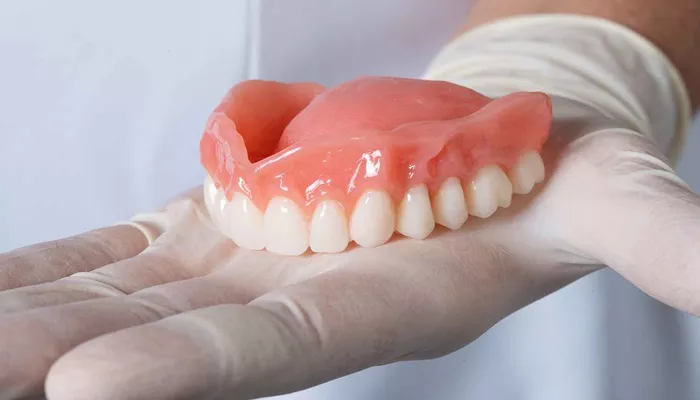Dentures are a common solution for individuals who have lost their natural teeth, providing a functional and aesthetic replacement. However, many denture wearers experience discomfort or pain in their gums, which can significantly affect their quality of life. Understanding the reasons behind this discomfort is crucial for finding effective relief and ensuring a positive experience with dentures. This article explores the primary causes of gum pain associated with dentures, offers insights into managing this discomfort, and provides recommendations for maintaining oral health.
The NatuAre of Dentures and Gum Sensitivity
When you first receive dentures, your gums may be sensitive due to healing from tooth extractions or the adjustment to a foreign object in your mouth. This sensitivity can lead to soreness, especially in the initial weeks of wearing dentures. The gums are composed of soft tissue that can become irritated when subjected to pressure or friction from ill-fitting dentures.
Common Causes of Gum Pain from Dentures
Understanding the specific factors that contribute to gum pain can help you address the issues effectively. Here are some of the most common causes:
Ill-Fitting Dentures: One of the primary reasons for gum pain is poorly fitting dentures. When dentures do not conform properly to the shape of your gums, they can rub against sensitive tissue, causing irritation and soreness. Over time, changes in the shape of your gums due to bone resorption (the loss of bone density) can lead to an improper fit.
Bacterial Build-Up: Inadequate cleaning of dentures can result in a build-up of bacteria and food particles. This accumulation can irritate the gums and lead to conditions such as stomatitis (inflammation of the mucous membrane), which exacerbates pain.
Pressure and Friction: Unlike natural teeth, which are anchored securely in the jawbone, dentures rest on the gums. This means that chewing and biting exert pressure directly on sensitive gum tissue. If the pressure is unevenly distributed due to misalignment or poor fit, it can lead to painful sore spots.
Adjustment Period: New denture wearers often experience discomfort as their mouths adjust to the new appliance. It may take time for your gums to toughen up and adapt to wearing dentures consistently.
Material Sensitivity: Some individuals may have allergic reactions to materials used in dentures, such as acrylic or certain adhesives. This sensitivity can manifest as inflammation and discomfort in the gums.
Symptoms of Gum Pain Related to Dentures
Recognizing the symptoms associated with denture-related gum pain is essential for timely intervention. Common symptoms include:
Soreness or tenderness in the gums
Redness or swelling around the gum line
Development of sore spots or ulcers
Increased sensitivity when chewing or speaking
Discomfort that worsens after prolonged wear
Managing Gum Pain from Dentures
If you are experiencing gum pain due to your dentures, several strategies can help alleviate discomfort:
Consult Your Dentist: The first step in addressing denture-related pain is consulting with your dental professional. They can assess the fit of your dentures and make necessary adjustments to improve comfort.
Proper Cleaning: Maintain a rigorous cleaning routine for your dentures. Use a soft-bristled toothbrush and non-abrasive denture cleaner daily to prevent bacterial build-up. Soaking your dentures overnight in a cleaning solution can also help maintain their integrity.
Gum Care: Regularly clean your gums with a soft toothbrush or gauze after removing your dentures. This practice helps reduce plaque accumulation and keeps your gums healthy.
Use Warm Salt Water Rinses: Rinsing your mouth with warm salt water several times a day can promote healing and reduce inflammation in sore areas.
Take Breaks from Wearing Dentures: Allowing your gums time to rest is crucial, especially during the initial adjustment period. Remove your dentures for at least four hours each day or while sleeping.
Dietary Adjustments: Opt for softer foods that are easier on your gums while you adjust to wearing dentures. Avoid hard, crunchy, or sticky foods that could exacerbate gum irritation.
Topical Treatments: Over-the-counter topical anesthetics containing benzocaine may provide temporary relief from gum pain. However, these should not replace addressing underlying issues with denture fit.
Regular Check-Ups: Schedule regular dental check-ups to monitor changes in your oral health and ensure that your dentures continue to fit properly over time.
When to Seek Professional Help
If you experience persistent gum pain despite following these management strategies, it is essential to seek professional help promptly. Continuous discomfort may indicate an underlying issue such as infection, improper fit, or other complications that require intervention from a dental professional.
Preventing Future Gum Pain
To minimize the risk of developing gum pain in the future:
Ensure regular adjustments are made as needed due to changes in gum shape.
Follow a consistent oral hygiene routine that includes both denture care and gum care.
Stay informed about any changes in your oral health and report them promptly to your dentist.
Consider using denture adhesives if recommended by your dentist; these products can help stabilize loose dentures and reduce friction against the gums.
Conclusion
Experiencing gum pain while wearing dentures is a common issue that many individuals face at some point during their denture journey. Understanding the causes of this discomfort is crucial for finding effective solutions and maintaining oral health. By consulting with dental professionals, adhering to proper cleaning practices, making dietary adjustments, and allowing time for adjustment, you can significantly reduce gum pain associated with dentures.

